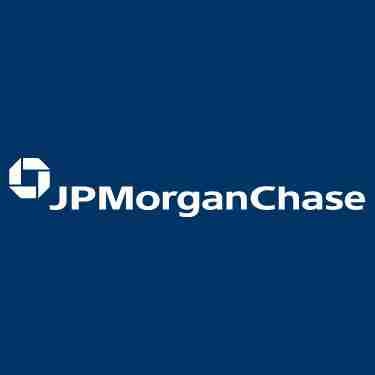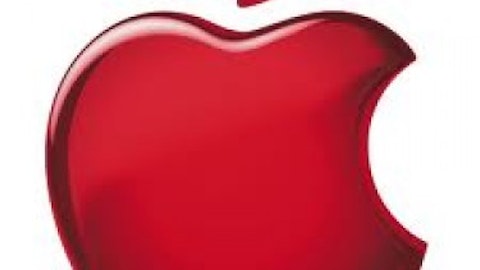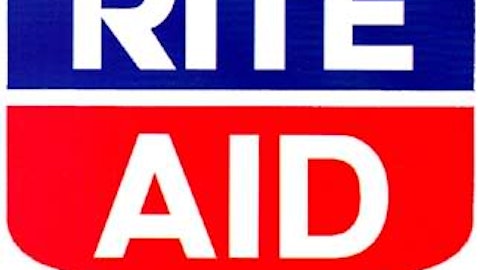So today, I am going to come across as a little controversial. I truly do respect Dick Bove, and I honestly believe he is a brilliant analyst. I, like him, have covered banks. Believing that banks were undervalued, I have said time and time again that banks would be a compelling investment opportunity.
Dick Bove Vice President of Equity Research at Rafferty Capital states in an interview:
For JPMorgan Chase to become the most profitable company, is going to take a few years. But I think by next year, it’s very possible that JPMorgan Chase could be the third most profitable company in the country, supplanting Chevron. I think that Apple might be easier than Exxon (NYSE:XOM)Mobil, to supplant in term of net income. Exxon is at the top, and I think it’s going to be extraordinarily difficult to supplant Exxon. Apple has planned obsolescence into their products. The American public is not responding favorably to that any longer.
Optimism behind banks is real
Now, I understand his optimism about the banks. He has a very reasonable reason for wanting investors to be invested into financials. The recovering economy, declining loan losses, falling credit losses, growth in the fee business, and cross-selling will contribute to the bottom line performance of the bank’s earnings growth going forward.
However, we have to compare Exxon Mobil Corporation (NYSE:XOM), JPMorgan Chase & Co. (NYSE:JPM), and Apple Inc. (NASDAQ:AAPL) side-by-side to come up with a reasonable angle to approach this topic of which will be biggest.

Source: Ycharts
I have to admit if anything, it is likely to be Apple supplanting Exxon Mobil Corporation (NYSE:XOM) in terms of net income. The reasoning for this is quite simple. Look at how fast Apple is growing when compared to JPMorgan Chase & Co. (NYSE:JPM) and ExxonMobil.
Analysts don’t anticipate any near term catalysts that could at least help the bank grow earnings in double digits going forward. Analysts believe that JPMorgan Chase & Co. (NYSE:JPM) will grow earnings by 6.31% on average over the next five years. Comparatively speaking, Apple is projected to grow earnings by 20.88% on average over the next five years. Exxon Mobil Corporation (NYSE:XOM) is projected to grow earnings by 1.81% on average over the next five years.
So if anything, it would be easier for JPMorgan Chase & Co. (NYSE:JPM) to catch up to the world’s largest oil company than it is for JPMorgan Chase to catch up to the world’s favorite technology company.
Just for fun math
Assuming Exxon grew at 1.81% and JPMorgan grew at 6.31% indefinitely, I have calculated that it would take 44.6 years for JPMorgan to catch up to Exxon’s net income. If JPMorgan was to grow earnings by 20% compounded, it could catch up to Exxon over the next five years, but the probability of that happening is slim. The bank would need a strong economy, paired with financial brilliance on an unprecedented scale to catch up to Exxon in the next five years.
I didn’t even bother doing the mathematical calculation for JPMorgan Chase & Co. (NYSE:JPM) and Apple. After all, Apple has bigger earnings than JPMorgan, plus higher rates of projected growth so it would be impossible for JPMorgan Chase & Co. (NYSE:JPM) to catch up to Apple’s earnings over the next five years barring any unforeseen circumstances.
Apple’s growth is not a joke
The hype behind Apple Inc. (NASDAQ:AAPL) is undeniably real. The company is projected to grow earnings at 20% on average over the next five years because the smartphone market is expected to double through 2012 to 2016 (which essentially means that the smart phone market will grow by 25% on average over the next four years). Gartner also estimated that the number of units shipped in the tablet market will grow from 125 million units in 2012 to 375 million in 2016. So, the tablet market is expected to triple over the course of four years, which means that the tablet market is projected to grow by 75% on average over the next four years.
Apple Inc. (NASDAQ:AAPL) products have a consistent level of quality, while I agree that the products are not for everybody. The company has done its best at creating an immersive computing experience that is easy to use and understand. The company’s retail strategy is likely to be fruitful in foreign markets.
The company also plans to lower the price of its products in order to capture a better share in emerging economies. The GDP per capita in China is $5,444 (average person in China makes much less than in the United States or Europe), meaning that it is practical for Apple Inc. (NASDAQ:AAPL) to lower the average selling prices of its phones in certain demographics in order to increase the rate of sales growth. Some feel uncomfortable with this, but it seems to be the most practical strategy going forward.
ExxonMobil isn’t set up to be what it is supposed to be
The company reported a quarter-over-quarter decline in earnings in the most recent quarter. Earnings declined. The primary reason for the decline in earnings was driven by the fact that the company’s crude oil realizations (price of crude oil) declined $8.66 per barrel.
The company’s upstream operations (drilling of natural resources) reported a $765 million year-over-year decline due to falling oil prices. The decline in the price of crude oil is likely to be temporary, but over the long-term, oil prices aren’t projected to go up exponentially.

Source: ExxonMobil
ExxonMobil anticipates further diversification in future sources of energy. The company’s management team anticipates peak oil in conventional crude & condensate by 2020. Traditional crude oil drilling generates the highest profit margins, but this high margin drilling business is being replaced by low-margin businesses like deepwater drilling, along with oil sands.
ExxonMobil projects oil consumption to increase 35% over the course of the next 40 years. So, total consumption is projected to increase less than 1% on average. The low rates of total consumption growth are driven lower by technologies that improve fuel consumption (hybrid car technologies have fuel efficiency into the 40 to 50mpg range).
California recently passed mandates for further fuel efficiencies, so a sudden exponential increase in organic demand is unlikely as technology is working down the demand for crude oil. California’s mandates for crude oil require that the Corporate Average Fuel Economy reach an average of 54.5 miles per gallons by 2025. The added efficiencies in fuel economy help to off-set the above growth rate in vehicles.
Conclusion
With due respect to Dick Bove, there’s just no way JPMorgan Chase & Co. (NYSE:JPM) can catch up to Apple Inc. (NASDAQ:AAPL), and especially not over the next five years. Perhaps, JPMorgan Chase will catch up to ExxonMobil, but that’s just because crude oil isn’t the hottest spot to be in.
The article Is Dick Bove Right About JPMorgan Becoming Bigger Than Apple? originally appeared on Fool.com and is written by Alexander Cho.
Alexander Cho has no position in any stocks mentioned. The Motley Fool recommends Apple. The Motley Fool owns shares of Apple and JPMorgan Chase & Co (NYSE:JPM). Alexander is a member of The Motley Fool Blog Network — entries represent the personal opinion of the blogger and are not formally edited.
Copyright © 1995 – 2013 The Motley Fool, LLC. All rights reserved. The Motley Fool has a disclosure policy.






